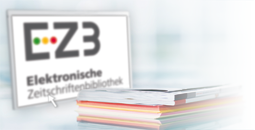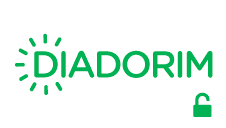RETEXTUALIZATION AND AI IN TEXT PRODUCTION:
IMPACTS OF DIGITAL TECHNOLOGY ON BASIC EDUCATION
DOI:
https://doi.org/10.47677/gluks.v25i02.541Keywords:
Artificial Intelligence, Retextualization, MultiliteraciesAbstract
The growing use of generative Artificial Intelligences (AI), such as ChatGPT, has been transforming certain everyday language practices as well as the ways we access and produce knowledge. However, this use often occurs uncritically, fostering a passive and dependent relationship between humans and systems based on colonial logics of knowledge production. In the school context, these tools have been increasingly used in routine activities such as text production, which can undermine student agency and silence knowledge rooted in their own lived experiences. This article analyzes the impacts of AI use on the production of retextualized short stories by 8th-grade students from a public school in the metropolitan area of Belo Horizonte (RMBH), Brazil. The analysis draws on the concept of the "condensation operation" proposed by Marcuschi (2004) and on the framework of meaning-making design developed by Cope and Kalantzis (2006, as adapted by Rojo, 2013). The results indicate a dilution of point of view and subjectivity in texts mediated by AI. Therefore, the constant use of artificial intelligences in text production leads to the erasure of authorship and personal involvement from students, weakening writing as a space for reflection and critical expression.
Downloads
References
BUZATO, Marcelo El Khouri; LEITE, Ana Luisa Marrocos. Escrita generativa algorítmica e a universidade pós-humanista: a redação do ENEM na grande assemblagem cognitiva. Forum Linguístico, Florianópolis, v. 21, n. 1, p. 10092-10111, jan./mar. 2024.
COSCARELLI, Carla Viana; RIBEIRO, Ana Elisa. O que dizem as matrizes de habilidades sobre leitura em ambientes digitais. Educação em Revista, v. 26, n. 03, p. 317-334, dez. 2010.
CRUZ, Luana; RIBEIRO, Ana Elisa. Escrever com plugins: plataformização dos textos e mediações algorítmicas. Tabuleiro de Letras, v. 18, p. 14-33, 2024.
FERRAREZI JR, Celso; CARVALHO, Robson Santos de. Produzir textos na educação básica: o que saber, como fazer. São Paulo: Parábola Editorial, 2015.
HARARI, Yuval Noah. 21 lições para o século 21. Tradução de Paulo Geiger. São Paulo: Companhia das Letras, 2018. 384p.
MARCUSCHI, L. A. Da fala para a escrita: atividades de retextualização. São Paulo: Cortez, 2004.
RIBEIRO, Ana Elisa; COSCARELLI, Carla Viana. Linguística Aplicada: ensino de português. São Paulo: Contexto, 2023.
RIBEIRO, Ana Elisa. Novas tecnologias para ler e escrever – algumas ideias sobre ambientes e ferramentas digitais na sala de aula. Belo Horizonte: RHJ, 2012.
RIBEIRO, Ana Elisa. Textos multimodais: leitura e produção. São Paulo: Parábola, 2016.
RIBEIRO, Ana Elisa. Multimodalidade, textos e tecnologias: provocações para a sala de aula. São Paulo: Parábola, 2021.
RIBEIRO, Ana Elisa. et al. (Org.) Leitura e escrita em movimento. São Paulo: Peirópolis, 2010.
ROJO, Roxane Helena R. (Org.). Escola Conectada: os multiletramentos e as TICs. São Paulo: Parábola, 2013.
ROJO, Roxane Helena R.; MOURA, Eduardo (Org.). Multiletramentos na escola. São Paulo: Parábola, 2012.
SILVA, Sivaldo Pereira. Inteligência Artificial, democracia e regulação. In: PENTEADO, Cláudio; PELLEGRINI, Jerônimo; SILVEIRA, Sérgio Amadeu da (org.). Plataformização, inteligência artificial e soberania de dados: tecnologia no Brasil 2020-2030. São Paulo: Ação Educativa, 2023b.
SILVEIRA, Sérgio Amadeu da. Capitalismo preditivo e os sistemas algorítmicos. In: PENTEADO, Cláudio; PELLEGRINI, Jerônimo; SILVEIRA, Sérgio Amadeu da (org.). Plataformização, inteligência artificial e soberania de dados: tecnologia no Brasil 2020-2030. São Paulo: Ação Educativa, 2023b. p. 119-142.
VICARI, Rosa Maria. Tendências em inteligência artificial na educação no período de 2017 a 2030. Brasília: Senai, 2018.
Downloads
Published
How to Cite
Issue
Section
License
Copyright (c) 2025 Gláuks - Revista de Letras e Artes

This work is licensed under a Creative Commons Attribution 4.0 International License.














